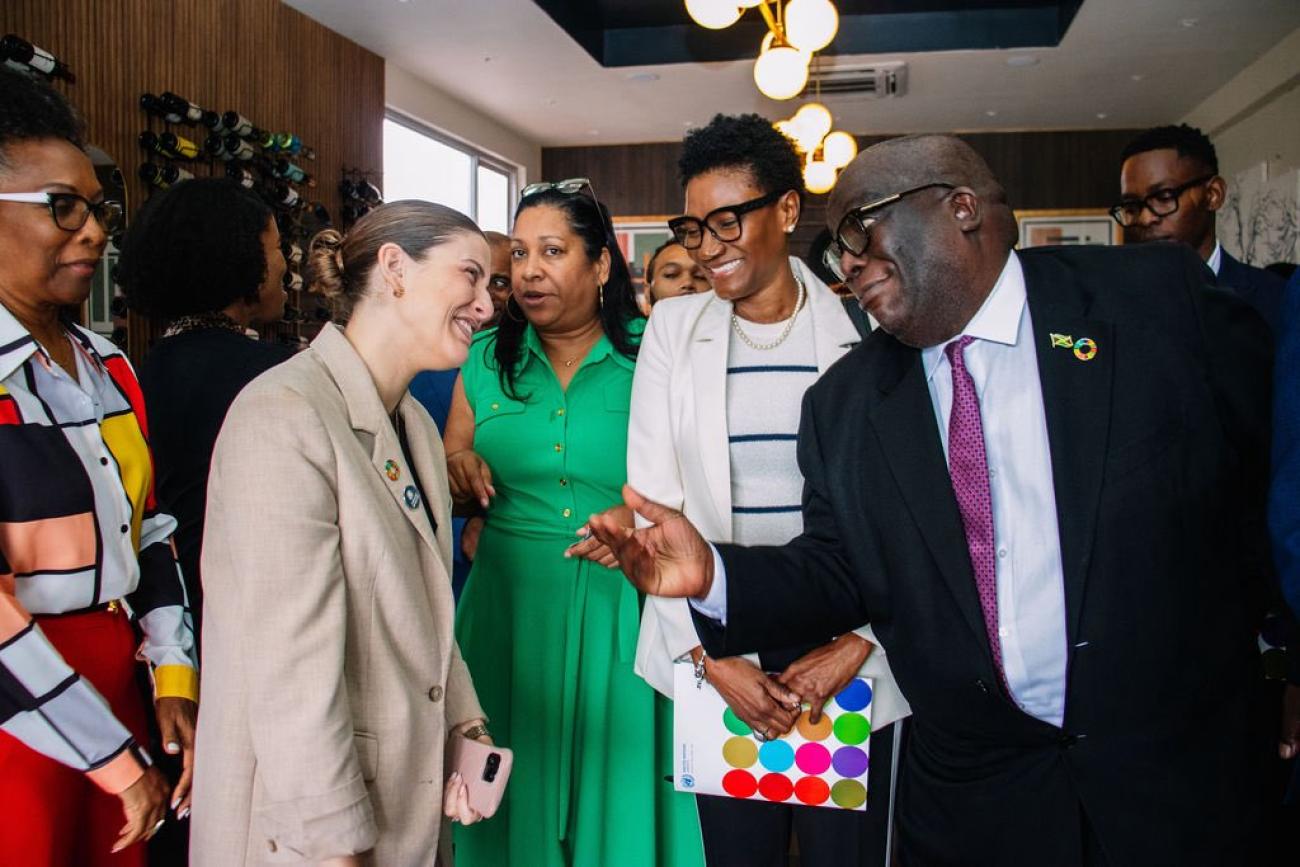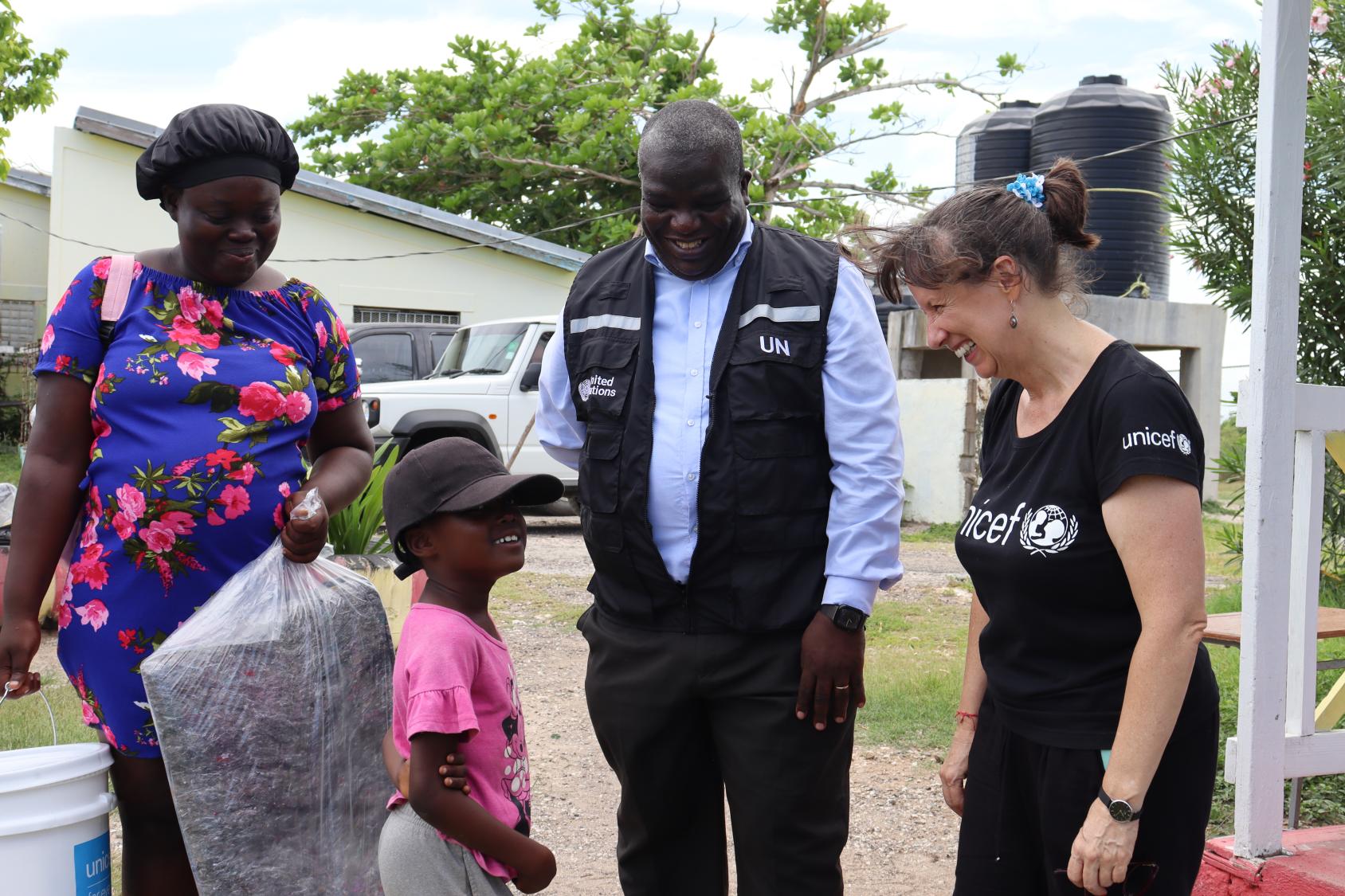Jamaica’s Big Bet: Turning Vulnerability into a Development Superpower

Size isn’t holding Jamaica back—it’s fueling its ambition. As a Small Island Developing State (SIDS), Jamaica faces climate shocks, high debt, and limited access to affordable finance. But instead of being constrained by these challenges, the country is flipping the script: turning risk into leverage, and constraints into catalysts for innovation.
With support from the UN Country Team, under the leadership of Resident Coordinator Dennis Zulu, Jamaica is forging bold, multi-sector partnerships to unlock new capital and drive inclusive growth. From blended finance—where public money helps attract private investors—to green bonds that raise money for environmental projects, and impact investing—where doing good and making a profit go hand in hand—Jamaica is showing that big goals need bold partnerships.
“Blended finance, green bonds, impact investment, resilient and inclusive social protection systems, digitizing education — we, the UN in Jamaica, are on it,” says Mr. Zulu. “Big goals need big partnerships.”

Finance that fits the reality
Jamaica’s story reflects a wider truth: traditional development finance doesn’t work for SIDS. It’s often too expensive, too slow, and too rigid to reflect their climate vulnerability or structural disadvantages. That’s why Jamaica is working with the UN to pioneer new financial approaches tailored to its context.
One breakthrough came through a joint initiative between the World Food Programme and Jamaica’s Ministry of Labour and Social Security, which used digital payments to deliver emergency cash to nearly 18,000 previously unreached people. More than just a social protection intervention, it proved the power of digital inclusion in expanding access to finance—and laid the groundwork for broader financial reforms.
Jamaica’s momentum is also inspiring neighbors. In the Bahamas, the Building Back Equal Through Innovative Gender Equitable Finance initiative helped dismantle barriers for women, youth, and persons with disabilities. With just $68,000 in seed funding, the program unlocked over $1 million in additional financing and shifted how financial institutions assess risk—prompting them to back marginalized entrepreneurs for the first time.
Connecting the dots: The RC’s role
Behind the scenes, Resident Coordinator Dennis Zulu plays a pivotal role—bringing together government, the private sector, academia, and international partners to turn shared goals into coordinated action.
“Our job is to connect the dots — government, private sector, and international institutions — to make sustainable solutions real,” says Zulu.
From convening the UN Jamaica Partnership Forum—which sparked new private-sector partnerships for youth employment—to guiding policy shifts that align public and private financing with national priorities, Zulu exemplifies the unique value of the UN RC system: acting as a strategic broker, not just a neutral coordinator.
From local action to global momentum
As the Fourth International Conference on Financing for Development (FfD4) concludes, Jamaica’s experience offers a powerful lesson: development finance must be reimagined to reflect vulnerability, unleash private capital, and support national leadership.
In 2024, the Resident Coordinator’s Office (RCO) and the University of the West Indies (UWI) teamed up to assess Jamaica’s access to climate finance. The findings were telling: eligibility criteria often penalized the country for not being poor “enough,” while adaptation funds were diverted to disaster recovery. The result? Structural injustice in how climate resilience is funded.
The analysis informed Jamaica’s advocacy with international partners—pushing for loss and damage finance, better access to concessional loans, and a global system that reflects the true cost of climate risk. These calls echo the ambition of the UN’s Pact for the Future: to reshape the financial system so it works for countries like Jamaica, not around them.
What FfD4 must deliver
FfD4 in Seville is more than a global meeting—it’s a test of global will. For Jamaica and other SIDS, the stakes are clear:
- Affordable finance for resilience and sustainable development.
- Reforms to concessional lending that prioritize vulnerability over GDP metrics.
- Scaled-up domestic resource mobilization to empower countries to invest in their own futures.
- De-risking strategies that bring in private investors and shift capital to where it’s needed most.
The Pact for the Future makes clear: private capital isn’t just a supplement to aid—it must become a core driver of sustainable development. Jamaica is already proving this. What’s needed now is a global framework that accelerates its efforts.
“Jamaica has the momentum,” says Zulu. “Together, we’re powering forward for the Sustainable Development Goals.”
Why it matters
Jamaica’s story is more than a local success—it’s a case study in what’s possible when national ambition meets global partnership. It shows that vulnerability can become negotiating power, that small states can lead on innovation, and that with the right partners, bold financing models are not just desirable—they’re doable.
FfD4 is the world’s chance to catch up.
To read more coordination results from the UN in Jamaica click here













